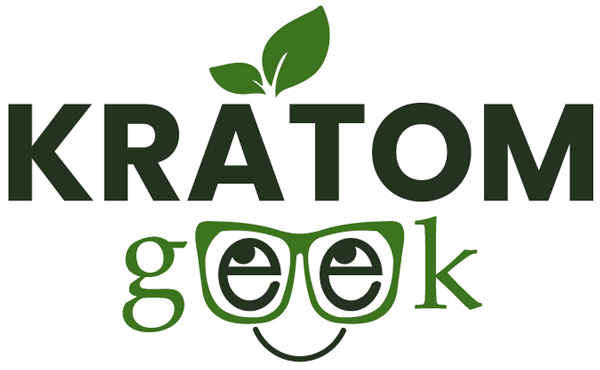As a kratom consumer, it’s disheartening to see the constant barrage of misinformation on the internet about the plant. One would think, in the information age, that the abundance of knowledge one has at their fingertips would usher in a new dawn. But we’ve seen quite the opposite in the past decade. With the expansion of social media and a wave of new domains across the web, anyone can present the story they wish to tell—all actual facts be damned.
And our government has latched onto this trend, using the tools to present a biased, one-sided story that skirts the truth and hitches itself to sensationalized buzzwords meant to instill fear in every audience that is willing to read it, without taking the time to fact check what is presented as truth. And it appears from the day-to-day online discussions I have with others that it’s the direction we’re headed as a nation. Nobody wants to research the information they’re presented. They either automatically accept or disassociate with it because of their confirmation biases on a particular subject. Everyone loves for the world to be placed inside the lines they choose to believe. Our perception of reality defines the reality we create for ourselves.
We’ve seen this repeatedly play out in our government. We have politicians that support ongoing conspiracy theories that have no proof to support them. Their fabricated evidence is more enticing. And that type of mentality also provides insight into the kratom disinformation in politics.
Illinois Created Kratom Legislation That Made Sense
The Food and Drug Administration (FDA) and the Drug Enforcement Agency (DEA) pulled together to create an ongoing campaign against kratom in the United States. It failed miserably, but it started an ongoing onslaught against the plant by our government ever since. On the federal side, it’s a constant bout of tug of war between the citizens and federal agencies. But it hasn’t stopped on the steps of the White House, either. There are several different battles for kratom legalization happening simultaneously in a number of state legislature buildings, too.
And we’re not winning them all, either. So far, six separate states have made kratom a Schedule I substance within those state borders. But kratom advocates continue to push for safe and smart legislation that regulates the kratom industry.
Illinois was a state that took the initiative to place some intelligent constraints on the industry back in 2014. Both Houses of the Illinois Legislature worked to pass House Bill 5526, which made it illegal for a minor, under the age of 18, to either possess or purchase any kratom products. The possession of kratom by a minor—or the sale to them—is punishable as a Class B misdemeanor in the state. Any violator could find themselves fined by the court to pay between $500 and $1500. If convicted, the charge might even result in the offender serving up to six months in jail.
But that’s simply a common-sense law. Nobody should be giving selling kratom to any children anyway.
Two Opposing Pieces of Legislation in Illinois
When the Kratom Control Act went into effect on January 1st, 2015, the entire kratom community applauded the decision. As a community, we definitely agree that kids should not be sold kratom products. Little children shouldn’t be chugging down a bunch of espressos any more than they should be slamming a shot of kratom. The representatives of the state made a great call that day.
However, something has changed since that day. Some of the representatives of Illinois have apparently been getting their information from the smear tactics provided by the FDA and DEA because they’ve drafted legislation to oppose kratom at the state level.
The Democratic Illinois Representative Katie Stuart, from the 112th District, filed House Bill 4106 with the Clerk back in October 2017. That bill would amend the Kratom Control Act’s wording of “minors” to say “person,” which would make it illegal for anyone (even adults) in the state to possess or sell kratom products. But the bill hasn’t passed yet. At the beginning of 2019, the House ended the session where the bill was active until further notice. So there’s no telling what will happen with it in the near future.
In the meantime, the Democratic Illinois Representative Marcus Evans Jr., from the 33rd District, filed House Bill 4681 back in February 2020. This bill, also known as the Kratom Consumer Protection Act, would regulate the kratom industry, making it illegal to sell any adulterated kratom products to the citizens of Illinois: it protects kratom consumers.
Troy, Illinois Votes to Ban Kratom Products
The war on the state level isn’t the only battle raging against kratom in Illinois. Specific municipalities have placed kratom in their crosshairs, too. And recently, in February 2020, the city of Troy took it upon itself to vote whether or not kratom should be illegal for all its citizens. When the city council voted on Ordinance 2020-04, it passed unanimously with a 6-0 vote.
That particular ordinance amended Chapter 133 of the Codified Ordinances of the City of Troy to prohibit the sale or possession of mitragynine and 7-hydroxymitragynine: the two most abundant alkaloids found inside kratom plants. So at this time, kratom is banned throughout the city of Troy, even though kratom products are currently legal in the state.
The Mayor of Troy, Allen Adomite, went on record to project the misinformation that the City Council was contemplating whenever they made the vote. The mayor said that even though kratom isn’t banned in Illinois, the plant had been associated with death. But that’s where he’s wrong. There are no reported claims where kratom was proven to be the cause of death for anyone. Every case that has tried to assert that false narrative has been debunked by scientific research, proving the contrary.
Those unethical lies about a plant don’t surprise me. Adomite recently tried to resign from his part-time position of mayor, so he could illegally be appointed to the position of city clerk without a vote: a salaried position with government benefits—he’s corrupt to the core.
We All Must Fight for Kratom
We have certain organizations fighting for kratom at the ground level. Non-profits like the American Kratom Association (AKA) use the donations that kratom consumers provide them with to purchase lobbyists to help mold the discourse at the political level. It doesn’t take an astrophysicist to understand that money and campaign contributions are what fuels Capitol Hill. And all the huge pharmaceutical companies have been taking advantage of that situation for years. They’d love to put up a roadblock to a natural substance that competes against addictive opioids. So they throw lots of money at any politician with their pockets open. That industry knows our government whores itself out to the highest bidder.
That’s why it’s important to utilize our opposition’s strategy against them. So if you have some money set aside for a charitable cause, the AKA could really use your financial support. But don’t worry if you’re strapped for cash right now. With the pandemic putting a stranglehold on the economy, I’m sure there are a bunch of you that are feeling the effects from the economic travesty. Perhaps you’re even stuck at home because of the current fiasco. And if that’s the case, there’s still a part for you to play in the ongoing battle to keep kratom legal.
You can contact kratom advocacy groups and ask if they need any volunteer work performed. Are you a lone wolf? Then you can start a pro-kratom group in your state. Just keep fighting for your right to have kratom.






